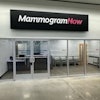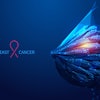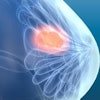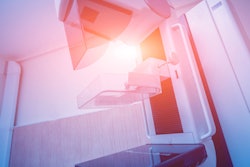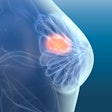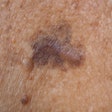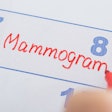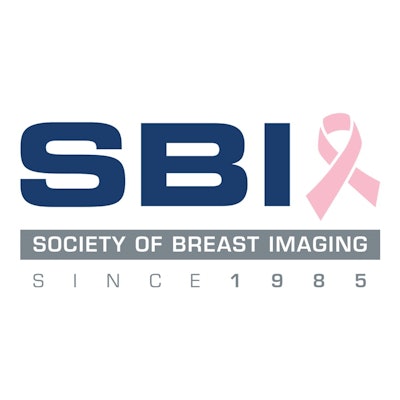
The Society of Breast Imaging (SBI) no longer recommends delaying screening mammograms around COVID-19 vaccinations, one of several revisions the society recently made for managing axillary adenopathy in patients who recently received the vaccines.
The revisions come after publications of several position statements, opinion pieces, and single-institution retrospective articles over the past year. The SBI also said the experience of breast radiologists in diagnosing and managing adenopathy in patients played a part in its latest recommendations.
"When information changes, opinions change. Now, we have better data and updated these guidelines to adjust accordingly with the new information we have," said Dr. Lars Grimm, chair of the SBI's patient care and delivery committee, to AuntMinnie.com. "It's basically taking a further step back and saying you don't need to schedule your mammogram around your COVID vaccine anymore."
Axillary adenopathy has been reported as a side effect of receiving the COVID-19 vaccines, regardless of brand used. Adenopathy presents itself on mammograms, leading to swollen lymph nodes and patient anxiety.
Previous guidelines created in early 2021 by the committee advised that women schedule their mammograms before a first vaccine dose or four to six weeks following the second dose of a COVID-19 vaccine. Grimm, a co-author of the previous and latest guidelines, said the SBI created conservative guidelines previously due to how little was known about vaccine-related adenopathy screening mammography. The goal was to reduce unnecessary workups and biopsies.
However, recent research suggests that adenopathy for the Moderna COVID-19 presents itself two to four days after vaccination, with a median duration of one to two days. Other studies reported that axillary adenopathy was detected as early as one day and as late as 71 days following vaccination, but it could persist for up to 43 weeks.
"The initial presentation of radiologically detected adenopathy may be later and the duration is much longer than clinically detected adenopathy," SBI said.
Research also suggests that adenopathy occurs in the range of 2.4% and 35% of cases in women undergoing screening mammography and/or ultrasound.
Along with no longer recommending delaying mammograms around vaccinations, the society also advises the following:
- It may be appropriate to give patients a benign assessment if they present with unilateral axillary adenopathy on screening mammography, have no other suspicious mammographic findings, and had a recent COVID-19 vaccination in the ipsilateral arm.
- Practices should establish their own definition for a recent vaccination.
- Practices can add language to their report saying, "Axillary adenopathy is presumed related to recent vaccination but might require additional evaluation if there is no relevant vaccination history or the patient has an underlying known malignancy that could manifest with metastatic adenopathy."
- A follow-up interval of 12 or more weeks is recommended for patients going through short-term follow-up (BI-RADS category 3) for presumed vaccine-induced adenopathy following appropriate diagnostic workup.
- A benign assessment or additional follow-up six months after initial presentation should be considered for patients who were previously recommended for short-term follow-up and have improved, but still-present, axillary adenopathy. Additional follow-up six months after initial presentation can be considered if adenopathy is unchanged (BI-RADS category 3). Lymph node sampling to exclude breast and nonbreast malignancy can be considered if adenopathy increases.
The SBI also said practices should continue to collect information on COVID-19 vaccination status, including the date and side effects of vaccination on patient intake forms.
Grimm also said being upfront in communicating with patients can help reduce anxieties.
"I think radiologists, especially breast radiologists, have been looking for some revised guidelines. A lot of people are trying to navigate this COVID world," Grimm told AuntMinnie.com. "These guidelines will be more consistent with the way in which a lot of people are practicing or want to practice or looking for some support from a national body."
